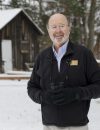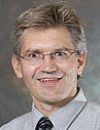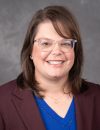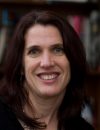No longer sequestered in an aging building in a space that was about equal to a garage with a few chest freezers, Bucky’s Varsity Meats, formally Bucky’s Butchery, has a shiny new home with a glistening meat counter, several glass doors for refrigerated and frozen products and bunkers filled with hot dogs, snack sticks and tubes of summer sausage.
UW In The News
-
How the much-litigated ballot deadlines impacted the US election
Voting by mail may seem more convenient, but it also requires the voter to act much earlier than they would if they went to the polls, said Barry Burden, political science professor at the University of Wisconsin–Madison. You have to make sure to request your ballot early, and in some states, make sure you have a valid ID to do so.
-
The best business, finance and retirement accounts to follow on Twitter in 2021
Malia Jones and “Dear Pandemic”: Jones is a researcher who works at the University of Wisconsin-Madison. Her work centers on infectious disease and social epidemiology, demography and geography, and she is also a creator of the project “Dear Pandemic.”
-
How climate change is affecting winter storms.
Does that mean this particular storm has been fueled by climate change? Jonathan E. Martin, a professor in the department of atmospheric and oceanic sciences at the University of Wisconsin-Madison, cautioned against drawing quick conclusions.
-
Martellus Bennett Writes the Books He Would Have Loved as a Kid
Bennett worries that Black kids aren’t afforded the same opportunities to imagine their way into mischief that white kids are. Surveying the children’s-entertainment landscape, he sees stories in which Black characters either don’t exist or exist merely to satisfy some goal of representation. Black authors are rarer still: According to data collected by the Cooperative Children’s Book Center, at the University of Wisconsin at Madison, less than 5 percent of children’s books published in 2019 were written by Black authors.
-
Covid-19 vaccines are on the way, and nursing homes need to get residents to themKai
“Imagine that the patient, who has some degree of cognitive impairment, says ’yes’ to the vaccine but the surrogate says ’no’ and tells the nursing home, ’How dare you try to do this?” said Alta Charo, a professor of law and bioethics at the University of Wisconsin-Madison Law School.
-
Suicides among teen athletes raise mental health concerns
The lead researcher of the study at Wisconsin, Tim McGuine, said in an interview in August that “the greatest risk [to student-athletes] is not covid-19. It’s suicide and drug use.” The study caught the eye of the organization overseeing high school sports, the National Federation of State High School Associations, which was already dealing with an uptick in reports from state athletic directors about mental health concerns for teen athletes whose seasons were in flux.
-
Monarch Butterflies Qualify for Endangered List. They Still Won’t Be Protected.
“While all of these people that care about monarchs are doing a lot of positive things, there are a lot of negative things happening at the same time,” said Karen Oberhauser, a conservation biologist at the University of Wisconsin who has studied monarchs since 1985. “We’re running as fast as we can to stay in the same place.”
-
One Wild Mink Near Utah Fur Farms Tests Positive for the Coronavirus
“Finding a virus in a wild mink but not in other wildlife nearby likely indicates an isolated event, but we should take all such information seriously,” said Tony L. Goldberg of the University of Wisconsin-Madison School of Veterinary Medicine. He added, “Controlling viruses in people is ultimately the best way to keep them from spreading to animals.”
-
U.S. agency sidesteps listing monarch butterflies as endangered
There’s also an element of uncertainty about what the monarch numbers collected by surveyors really mean. “The year-to-year fluctuation in monarch numbers makes it difficult to put an exact number on the degree to which monarch populations have declined,” says Karen Oberhauser, a conservation biologist at the University of Wisconsin, Madison, who has studied monarchs since 1985. Data from as far back as the 1950s show “it is very clear that monarch butterflies are a very high fluctuation species in terms of their population dynamics,” Agrawal agrees. Populations that crash can recover. Females lay hundreds of eggs, only two of which need to survive for the population to survive. And because four generations occur per year, even if most of the butterflies in Mexico die one year, “there is opportunity for the population to recover.”
-
The Electoral College is flawed — so are the alternatives: Experts
“There’s no such thing right now as the national popular vote. It’s just a bunch of 50 state races that get added together,” explained Barry Burden, political science professor and founding director of the Elections Research Center at the University of Wisconsin-Madison.
-
COVID-19 public health message is bigger than messenger, experts say
“Research would confirm again and again, when people feel that what’s asked from them is not actually followed by those in power, there’s a sense of betrayal that will occur,” said Dominique Brossard, professor and chair of the Department of Life Sciences Communication at the University of Wisconsin-Madison.
-
Endangered-species decision expected on beloved butterfly
“But a lot is happening that’s taking away habitat at the same time,” said Karen Oberhauser, a restoration ecologist and arboretum director at the University of Wisconsin at Madison. “It’s like we’re running fast but staying in the same place.”
-
Equity gap: Poor colleges serving low-income students need more money
It’s time for federal and state legislators to work together to make targeted public investments, close resource gaps, and address structural barriers to opportunity that have plagued the higher education system for decades and that have been made only more urgent by the COVID-19 pandemic and our national reckoning on racial justice. It’s time for a real conversation about equity-based funding in U.S. higher education.
Nick Hillman is associate professor of educational leadership and policy analysis at the University of Wisconsin-Madison. Follow him on Twitter: @n_hillman
-
UW Health receives first COVID-19 vaccine shipment; first employees get vaccinated
On the day U.S. deaths from COVID-19 surpassed 300,000, respiratory therapist Tina Schubert became the first UW Health employee and one of the first Wisconsinites to be inoculated with the vaccine made by Pfizer and the German biotechnology firm BioNTech.
-
A new poll shows the ‘outsized’ financial burdens faced by millennials
Noted: The new Harris Poll was commissioned by DailyPay, the Bipartisan Policy Center Funding Our Future campaign, and The Center for Financial Security at the University of Wisconsin. The survey was conducted online from Nov. 17-19 and surveyed 2,075 U.S. adults ages 18 and older, among whom 593 are millennials between the ages 24-39.
“This data shows the resilience of younger generations in the face of the second major economic shock of their financial lives,” added J. Michael Collins of the Center for Financial Security, referring to this year’s pandemic and the Great Recession of 2007-2009.
-
What reactions can I expect? And other COVID-19 vaccine questions answered by Wisconsin health experts
Much-anticipated COVID-19 vaccines are being distributed across Wisconsin starting in mid-December. Though widespread availability of the vaccine is still months away, we know you may have questions.
The Milwaukee Journal Sentinel has assembled a panel of experts from the University of Wisconsin to help answer questions from readers.
-
These Non-Lethal Methods Encouraged by Science Can Keep Wolves From Killing Livestock
Research from the Carnivore Coexistence Lab at the University of Wisconsin Madison has shown that killing gray wolves actually leads to three times more livestock attacks, a finding supported by behavioral studies elsewhere. “The wolf pack is a family,” says Adrian Treves, who runs the lab. They cooperate to defend territory and raise pups. When one is killed, the destabilizing effect ripples through the pack. Reproductive age goes down, and naive juvenile attacks on livestock go up, according to Colleen St. Clair, a biologist at the University of Alberta.
-
Honeybees found using tools, in a first—to repel giant hornet attacks
Bob Jeanne, a wasp expert at the University of Wisconsin-Madison, says the authors are “correct in calling this the first example of tool use by a honeybee… I think they’re applying a reasonable definition.”
-
U.S. physicists rally around ambitious plan to build fusion power plant
The new fusion road map identifies technological gaps and nearer-term facilities to fill them (see partial list, below). “By identifying [a power plant] as a goal, that can trigger more research in those areas that support that mission,” says Stephanie Diem, a fusion physicist at the University of Wisconsin, Madison. For example, in a fusion power plant a barrage of energetic neutrons would degrade materials, so the report calls for developing a particle-accelerator–based neutron source to test new ones.
-
Asteroid Dust from Hayabusa2 Could Solve a Mystery of Planet Creation
“This is a short-lived nuclide that only exists in the early solar system,” says Noriko Kita, an expert in meteorite aging from the University of Wisconsin-Madison. That advanced vintage makes chondrules the second-oldest recognizable objects in our solar system, after calcium-aluminum-rich inclusions (CAIs), specks of white in meteorites that are thought to have formed one to three million years earlier by condensing out of the gas that surrounded our young sun.
-
When do voters support Black Lives Matter or the Green New Deal?
As President-elect Joe Biden continues his transition to the White House, House Democratic progressives and centrists are fighting over how to frame the party’s agenda for the public. For instance, progressive Rep. Rashida Tlaib (D-Mich.) said “I can’t be silent” and will continue speaking about policy goals ranging from defunding police departments to passing the Green New Deal. But centrist Democrat Rep. Abigail Spanberger (D-Va.) argues that if party members keep using such language, Democrats will get “torn apart in 2022.”
-Jianing Li, Mike Wagner, Lew Friedland, Dhavan Shah
-
Baltimore’s New Progressive Mayor Is Ready To Tackle The City’s Biggest Problems
“Baltimore never really wrestled with the demons of segregation,” said Lawrence Brown, a visiting sociology professor at the University of Wisconsin-Madison
-
The Easy Way to Quit Smoking
“I am always a bit suspicious of silver bullets in public health,” Michael Fiore, one of the country’s leading experts on tobacco use and smoking cessation, told me. “Things are rarely silver bullets. But reducing the nicotine in cigarettes to near-zero is as close to a silver bullet as you get.”
-
How the leading coronavirus vaccines made it to the finish line
Some scientists believed from the start that it would be possible to repurpose this basic cellular function for medicine. In 1990, a Hungarian-born scientist at the University of Pennsylvania, Katalin Kariko brashly predicted to a surgeon colleague that his work would soon be obsolete, replaced by the power of messenger RNA therapies. That same year, a team at the University of Wisconsin startled the scientific world with a paper that showed it was possible to inject a snippet of messenger RNA into mice and turn their muscle cells into factories, creating proteins on demand.
-
Pricey mini campus promises students maskless, safe spring term
Craig Roberts, epidemiologist emeritus at the University of Wisconsin at Madison, said that “bubbles sound good in concept but are difficult to pull off, especially at this scale.”
“The key, he said, “is the degree to which the community stays in the bubble, of course, and nobody violates the rules” — sneaking into town, for example. But staff members could be potential problems if they’re coming and going from the community. That makes it more like a long-term care facility, he said, where only residents are on lockdown.
-
Fears of coronavirus jump intensify in Thanksgiving’s aftermath
Days after millions of Americans ignored health guidance to avoid travel and large Thanksgiving gatherings, it’s still too soon to tell how many people became infected with the coronavirus over the course of the holiday weekend. But as travelers head home to communities already hit hard by the disease, hospitals and health officials across the country are bracing for what scientist Dave O’Connor called “a surge on top of a surge.”
“It is painful to watch,” said O’Connor, a virologist at the University of Wisconsin at Madison. “Like seeing two trains in the distance and knowing they’re about to crash, but you can’t do anything to stop it.”
-
Canadian illustrator Julie Flett’s books reveal the truth about modern Indigenous life
Only 46 out of 4,035 books for children and teens reviewed in 2019 were by Indigenous authors, according to data compiled by the Cooperative Children’s Book Center at the University of Wisconsin-Madison.
-
UW-Madison has a new cutting edge home for sausage, bacon, steak and innovation
-
Leaf-cutter ants are coated in rocky crystal armor, never before seen in insects
The discovery is especially surprising because the ants are well known. “There are thousands of papers on leaf-cutter ants,” says study co-author Cameron Currie, an evolutionary biologist at the University of Wisconsin-Madison.
-
Who would benefit from canceling $10,000 in student debt?
Biden’s platform states that “student debt both exacerbates and results from the racial wealth gap.” Of the 1 in 5 Americans with student loan debt, a disproportionate number are Black. Nick Hillman, associate professor of educational leadership and policy analysis at University of Wisconsin-Madison, points out that data shows in communities of color, 17% of borrowers are in default and their median loan is $9,067.
- Newer stories
- Page 48 of 140
- Older stories
Featured Experts
Kathleen Glass: Food safety
Food is an integral part of Thanksgiving. And who doesn't love leftovers? But after how long should you leave those… More
Cecelia Klingele: Body-worn cameras by police
Madison Police Chief Shon Barnes is requesting that the city fund widespread use of body cameras for officers in the… More
Stanley Temple: Fall phenology
The days have finally started getting cooler and we all know winter awaits. Stanley Temple, an expert on birds, wildlife, endangered… More
Jonathan Temte: The seasonal flu shot
Family medicine professor Jonathan Temte is available to discuss this year's updated seasonal flu shot and flu prevention and control. More
Noelle LoConte: Pancreatic Cancer Awareness Month
Pancreatic cancer is one of the most difficult cancers to prevent, diagnose or treat. Earlier this month, music legend Quincy… More
Alvin Thomas: Movember and Men's Health Month
You might see more facial hair this month as Movember goes into full effect, drawing awareness toward men's health. Alvin… More
Dominique Brossard: Vaccine hesitancy
With a new administration poised to take power in January, a change in policy regarding vaccines may also be on the way.… More







